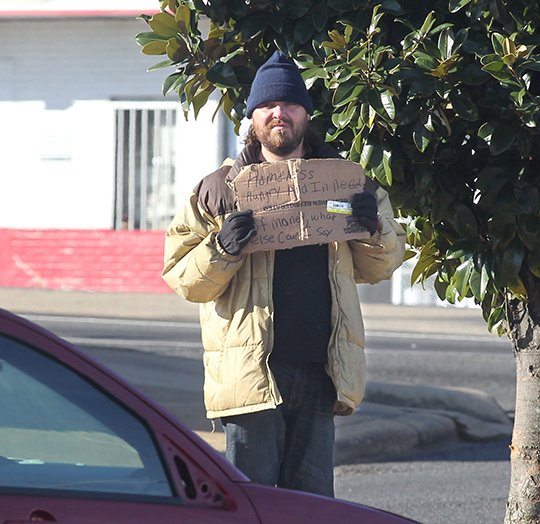An ordinance the American Civil Liberties Union of Arkansas has said targets panhandlers took effect Thursday, but the city is waiting for a judicial determination before it begins enforcing it.
Hot Springs City Attorney Brian Albright said citations won't be issued for violating the ordinance that prohibits the physical interaction of pedestrians and motorists on public rights of way until the court rules on the ACLU-sponsored federal lawsuit challenging the constitutionality of the new regulation.
Albright said that may change if the lawsuit isn't resolved within a reasonable time frame. Hot Springs police will issue warnings in the interim, he said.
"There needs to be an educational period," he said. "If police officers observe a violation, they'll make the person aware the ordinance is in effect. They won't be writing citations until there's been a good deal of education for motorists and pedestrians alike."
ACLU attorney Bettina Brownstein said the organization plans on filing a motion for summary judgment in the lawsuit it brought on behalf of Michael Rodgers in June. A motion to add more plaintiffs may also be forthcoming, she said
The ACLU suspended the lawsuit while it waited to see what would replace the ordinance the Hot Springs Board of Directors repealed in August. It prohibited the solicitation of donations from motorists on public rights of way.
The amended complaint the ACLU filed last month argues that the new ordinance adopted at the board's Dec. 5 business meeting invokes public safety to criminalize panhandling.
It doesn't allow vehicles and motorists to "interact physically," which is defined as an "attempt to make physical contact with a motor vehicle or any object or occupant therein," or "to make physical contact or attempt to make physical contact with a pedestrian or object in the possession of such pedestrian by an occupant of a motor vehicle."
Albright said people can hold signs on medians, sidewalks or other lawful locations, but the physical interaction of motorists and pedestrians is prohibited. He said both can be cited.
The ordinance the board repealed in August was adopted in September 2016 in response to the increased presence of panhandlers at busy intersections following the dismissal that June in Garland County Circuit Court of Rodgers' loitering conviction.
The Hot Springs District Court convicted him in 2015 under the state's loitering statute, which was subsequently invalidated by a federal court order after the ACLU successfully challenged it on behalf of Rodgers and another plaintiff.
The amended complaint in Rodgers' lawsuit against the city claims his constitutionally-protected right to panhandle has been limited. It seeks to enjoin the city from enforcing the new ordinance and a judgment declaring it unconstitutional.
The city argued in its response that Rodgers has no standing to bring the claim and has suffered no harm as a result of either ordinance.
Local on 01/05/2018